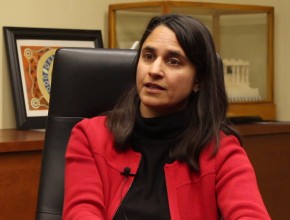Related McMaster Perspective episodes
Guyatt G, Jaeschke R. Aspirin in prevention of cardiovascular events. McMaster Textbook of Internal Medicine. Published March 8, 2016.References
ASCEND Study Collaborative Group, Bowman L, Mafham M, Wallendszus K, et al. Effects of Aspirin for Primary Prevention in Persons with Diabetes Mellitus. N Engl J Med. 2018 Oct 18;379(16):1529-1539. doi: 10.1056/NEJMoa1804988. Epub 2018 Aug 26. PubMed PMID: 30146931.McNeil JJ, Wolfe R, Woods RL, et al; ASPREE Investigator Group. Effect of Aspirin on Cardiovascular Events and Bleeding in the Healthy Elderly. N Engl J Med. 2018 Oct 18;379(16):1509-1518. doi: 10.1056/NEJMoa1805819. Epub 2018 Sep 16. PubMed PMID: 30221597; PubMed Central PMCID: PMC6289056.
McNeil JJ, Woods RL, Nelson MR, et al; ASPREE Investigator Group. Effect of Aspirin on Disability-free Survival in the Healthy Elderly. N Engl J Med. 2018 Oct 18;379(16):1499-1508. doi: 10.1056/NEJMoa1800722. Epub 2018 Sep 16. PubMed PMID: 30221596.
McNeil JJ, Nelson MR, Woods RL, et al; ASPREE Investigator Group. Effect of Aspirin on All-Cause Mortality in the Healthy Elderly. N Engl J Med. 2018 Oct 18;379(16):1519-1528. doi: 10.1056/NEJMoa1803955. Epub 2018 Sep 16. PubMed PMID: 30221595.
Roman Jaeschke, MD, MSc: Good afternoon, welcome to another edition of McMaster Perspective. I would like to welcome Professor Gordon Guyatt. Almost 3 years ago we had a short interview on using aspirin in primary prevention. Has something changed since? There was a number of publications on the subject.
Gordon Guyatt, MD, MSc: Yes, there were several big trials, one was highlighted in patients with diabetes and one in the elderly. The superficial interpretation of those trials was that aspirin was not very good for the elderly but maybe it was OK for people with diabetes. However, we think those interpretations were a little bit misguided.
Roman Jaeschke: Could you expand on that?
Gordon Guyatt: The reason they were misguided is that if you look at the relative risks of myocardial infarction and bleeding, which are the big issues, the relative risks in those studies were completely consistent with the relative risks generated from the first 100,000 patients enrolled in randomized trials of diabetes. So in terms of the relative effects of aspirin on the benefit side on myocardial infarction and on the harm side on bleeding, major gastrointestinal bleeds, it was really quite consistent.
There were, however, some changes. There was previously preliminary evidence suggesting a possible decrease in cancer and, most convincingly, a decrease in colon cancer incidence which these studies did not support. Also, there was one other major change. On the first 100,000 patients enrolled there was a suggestion of a possible decrease in all-cause mortality. The confidence interval around that just touched the line of no effect. So it was uncertain whether there was a reduction in all-cause mortality but some suggested that. When you add in the new trials, the confidence interval now moves over and includes increased mortality with aspirin, and so really we do not think anymore we can say there is a suggestion of a benefit in all-cause mortality.
The bottom line after all this is that you have a decrease in myocardial infarction and an increase in bleeding with aspirin that more or less, in most people’s view, would balance out.
Roman Jaeschke: When you say “balance out,” one would expect, in absolute terms, a similar amount of bleeding to a similar amount of myocardial infarction?
Gordon Guyatt: That is right. The absolute reduction in myocardial infarction would be more or less the same as the absolute increase in bleeding. In most instances you would say, “Let’s look at your myocardial infarction risk. If you have got cardiovascular risk factors, then the risk of myocardial infarction increases, and your potential benefit also increases.” Unfortunately, the same risk factors that increase your risk of myocardial infarction also increase your risk of bleeding. As your benefit for myocardial infarction goes up, your harm with bleeding goes up at the same time. So they continue to be balanced out in both low-risk and higher-risk people.
Roman Jaeschke: I have my own preferences about what I would like to suffer: bleeding or myocardial infarction. Have you changed your behavior?
Gordon Guyatt: First of all, the other thing to note is that we are talking about low-risk individuals. For most people, we are talking about risks of not much more than 1% over a 10-year period, and neither the increased bleeding risk nor the decreased myocardial infarction risk [is large]. So we are really talking about very small effects.
Before the new data I was taking the aspirin, but I was partly doing it because of this all-cause mortality effect. When the all-cause mortality effect is no longer convincing, I have stopped taking my aspirin. But, as you have pointed out, it has to do with values and preferences. I will give you 3 of them. A person who says, “I do not like taking pills every day with these very small benefits, very small risks”—forget it, that person should not take aspirin. Somebody says, “I am more worried about a major bleed from my gastrointestinal tract, not so worried about myocardial infarction”—that person should not take aspirin. Somebody who says, “My big worry is heart attacks, I would like to do anything I can to avoid heart attacks, I am not as worried about bleeding”—that person might well use aspirin if they are ready to use a drug for a very small absolute effect.
Roman Jaeschke: Thank you very much. I think it is of major use to me and, hopefully, to our listeners. Thank you, Professor Guyatt.
 English
English
 Español
Español
 українська
українська











